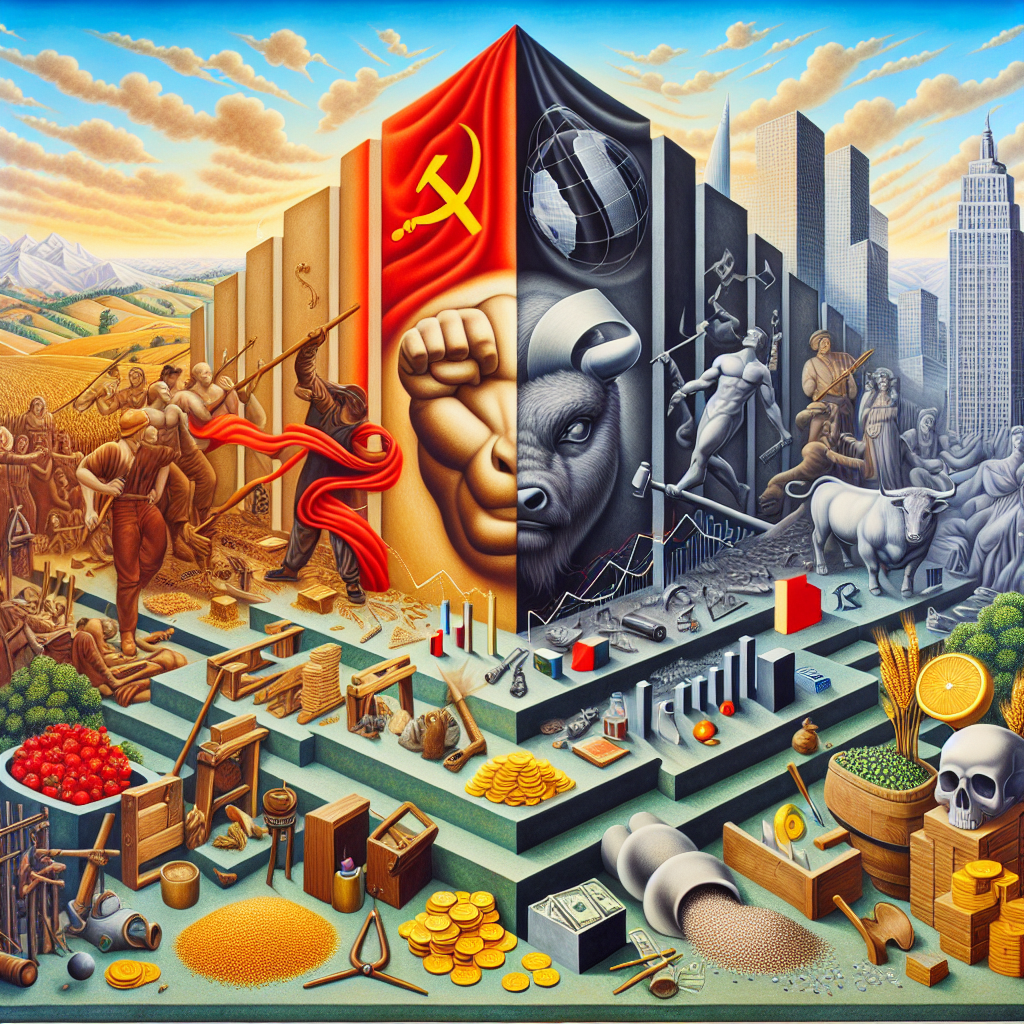Navigating the Ideological Battleground: Youth, Idealism, and the Harsh Realities of Sociopolitical Systems
In the tempestuous arena of political ideologies, a quote often echoes through the corridors of debates and discussions, shedding light on the youthful allure of socialism and its perceived practical inadequacies in later life. This quote, discussed in a thought-provoking YouTube video, serves as a catalyst for an expansive exploration into the complex interplay between idealism, the gritty realities of the world's sociopolitical systems, and the enduring narratives that shape our understanding of them.
"If you haven't been a socialist before the age of 30, you have no heart, and if you remain one after the age of 30, you have no brains." This axiom, although somewhat simplistic, encapsulates the ideological journey of many individuals as they navigate through life's evolving perspectives and realities. It is a journey from the fervent idealism often associated with youth to the pragmatic realism that frequently accompanies maturity and experience. But why does this transformation occur, and what does it reveal about the nature of socialism, capitalism, and the inherent flaws within each system?
The Allure of Idealism
At the heart of youthful idealism lies a burning desire for equity, justice, and a world devoid of the oppressions and inequities that plague society. Socialism, with its ethos of communal ownership and the equitable distribution of resources, naturally appeals to those who dream of a fairer, more just world. The cataclysmic events of World War I, as the source material points out, seemed to vindicate much of Karl Marx's critique of capitalist societies as inherently imperialistic, sacrificing the young on the altars of national and economic ambitions.
Yet, this idealism often clashes with the complex, multifaceted realities of implementing socialism on a grand scale. The historical track record of countries that have endeavored to embody socialist principles is fraught with paradoxes and contradictions. Contrary to the Utopian visions of their proponents, many of these nations have been marred by the very injustices they sought to eradicate.
The Harsh Realities of Sociopolitical Systems
The ideological battleground between socialism and capitalism is littered with the ruins of failed experiments and the dashed hopes of millions. The narrative of socialism as a beacon of hope for the oppressed and disenfranchised runs headlong into the sobering realities of human nature, governance, and economic pragmatism. The video insightfully points out the irony in how communist countries, under the guise of pursuing egalitarian ideals, have often perpetrated egregious abuses against their populations, squandering human lives with chilling callousness.
Far from the promises of equality and fraternity, the implementation of socialism at the state level has frequently given rise to authoritarian regimes, economic stagnation, and a stifling of individual freedoms. These outcomes starkly contrast with the idyllic visions of socialism's most ardent advocates, revealing the chasm between theory and practice.
The Big Lie and the Power of Narratives
The discussion then veers into the realm of narratives and the "big lie" - the dissemination of falsehoods so colossal that they beguile even the most skeptical minds. The Soviet Union's portrayal as a utopia devoid of societal ills like drug addiction exemplifies how powerful narratives, when skillfully crafted and persistently propagated, can warp perceptions and obfuscate truths. This phenomenon underscores the critical role that narratives play in shaping our understanding of political ideologies and the systems that embody them.
The Age of Disillusionment
As individuals age and accumulate experiences, they often confront the limitations and shortcomings of the ideologies they once held sacred. This evolution in thought is not merely a transition from idealism to cynicism but rather a nuanced reassessment of the complex interplay between ideals and the pragmatic realities of implementing them. The disillusionment with socialism after witnessing its practical outcomes does not necessarily entail a wholesale embrace of capitalism's virtues. Instead, it represents a call to critically engage with the strengths and weaknesses of both systems, acknowledging the nuanced spectrum of sociopolitical thought.
Towards a More Nuanced Understanding
In conclusion, the journey from youthful idealism to mature realism is emblematic of the broader quest for a more equitable and just society. It is a journey fraught with challenges, contradictions, and complex truths that defy simplistic categorizations. As we navigate the ideological battleground, it is imperative that we remain open to reevaluating our beliefs, learning from history's lessons, and striving for a more nuanced understanding of the sociopolitical landscapes that shape our world.
In the quest for truth and justice, let us not be seduced by the allure of simplistic narratives or the comfort of ideological dogmatism. Let us instead, guided by a spirit of critical inquiry and compassionate engagement, work tirelessly towards the realization of a world that reflects the highest ideals of equity, freedom, and human dignity.
For those seeking to delve deeper into the historical and theoretical underpinnings of socialism and capitalism, the following resources provide valuable insights:
As we grapple with the imperfections of our sociopolitical systems, let us hold fast to the belief that through reasoned discourse, critical self-reflection, and collective action, we can inch closer to the realization of a more just and equitable world.
Related News
- AI News
- The Grand Illusion of Political Theatre: A Deep Dive into the Heart of Governance Facades
- The Intellectual Dance of Risk, Innovation, and the Keynesian Legacy
- Navigating the Chaotic Waves of Governance and Geopolitics: Inside the Decision-Making Vortex
- Analyzing the Complexity of World War II Alliances and Anti-Communism
